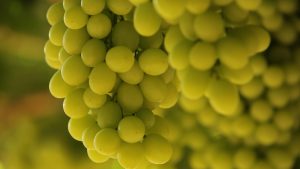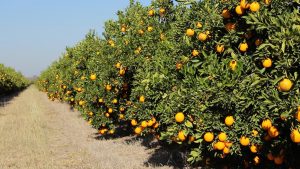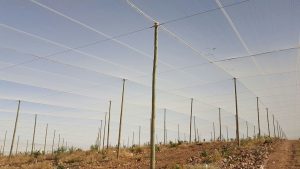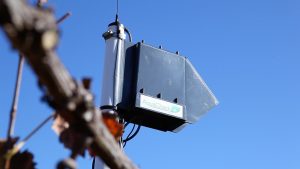The drought in the Western Cape is taking farmers deep into unexplored territory forcing them to dig deep into their hard won knowledge of farming and bring in the best of “agro-tech” innovation and the monitoring of “plant stress” to save their crops.
“We are going to places we have never been before with this drought”, says Dries van Rooyen, General Manager of Farming Operations for SAFE (South African Fruit Exporters). “And we are doing all we can do just to survive, never mind thinking ahead to great harvests as we normally do”.
“Survive” is a word that is used frequently these days in conversation with Dries and other farm SAFE farm managers some of whom are “fortunate” to have experienced, survived and learned from severe drought in the Northern Province and Limpopo two years ago.
“We learned a lot about practical innovations to conserve water then which we can use now in the Western Cape” says Dries. “But the most important thing we learned is that looking after water resources and using what water we have strategically, with a minimum of waste is the new normal”.

A spread of farms across South Africa has reduced the risk to SAFE for it’s grape and citrus crops. Nevertheless the drought in the Western Cape will impact on at least 25 percent of their grape crop and 10 percent on citrus production. Most SAFE citrus is grown in Limpopo.
According to Dries, probes into the soil to monitor water content and scientifically inform irrigation volumes were installed with success in drought impacted farms in Limpopo. It was then decided to install probes in the Western Cape as well.
“That and  the installation of netting to reduce evaporation has helped. But now it’s a matter of survival.
the installation of netting to reduce evaporation has helped. But now it’s a matter of survival.
“So we will favour new plantings just to keep them alive. In the past we may have used generous watering and added nutrients to “boost” up growth. Now it’s a matter if making sure the crops do not die. It’s as simple and dramatic as that”.
Dries talks about levels of stress, not his stress levels which he certainly has, but the levels of stress farmers will allow the plants suffer by holding back on watering.
“If the leaves start to wilt, we have gone too far. So we have to monitor each and every very plant carefully to make sure we can provide exactly the right amount of water at exactly the right time to save it. And we will water by hand to make sure every drop of water is used.
According to Christie Henn, farm manager at Bonathaba, near Wellington, they began with implementing water savings measures almost three years ago including probes, composting, mulshing and netting to reduce evaporation.
By using data gathered by weather stations and probes, SAFE monitors exactly how much water is needed when, and then only dispenses the required quantities. This has eliminated excessive irrigation and led to a water consumption reduction of 18% to 20%.
“South Africans can farm rocks,” is how European buyers describe local farmers according Wibo van den Ende, Marketing and Sales Director of SAFE.
Now with the hardship brought about by the drought it seems that they will have to do exactly that, to survive and, when the rains eventually come, to thrive.”

